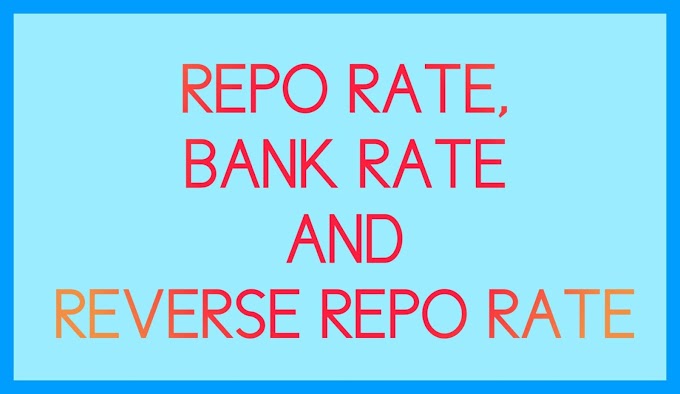Nowadays individuals invest in a Fixed Deposit simply because they feel their money is secure in the bank. But if we talk about better returns, Mutual Funds is a quite superior decision.
Mutual Funds vs Fixed Deposit
Along with these, if you are not sure between FD or Mutual Fund, we should take you through a couple of fundamentals about both FD and Mutual Funds that will help you settle on an insightful choice.
Let me figure out what if you choose to invest Rs 10,00,000 in Fixed Deposit v/s Mutual Funds separately.
Fixed Deposit
What is a Fixed Deposit? A Fixed Deposit offers the returns which don't change all through the time period of investments. As indicated by Wikipedia, "A Fixed Deposit (FD) is a financial instrument given by banks which give investors a higher rate of interest than a simple savings account, until the given maturity date."
Mutual Funds
Then, Mutual Fund is a financial vehicle wherein funds are kept in by countless individuals or investors to invest the money in securities like stocks, equities, bonds or potentially other valuable assets. Every investor claims units, which speaks to a segment of the holdings of the fund.
The income or gains generated from this aggregate investment is then circulated proportionately among the investors after deducting certain expenses.
While both Fixed Deposits and Mutual Funds empower investors to develop their savings, their advantages offered may fluctuate in terms of their investment needs. Consequently, prior to making any investment, it is ideal to think about both these investment roads in detail.
Liquidity: Many individuals have this idea that investing in Mutual Funds ought not be empowered. All things being equal, they discover Bank FDs to be a more secure alternative.
Be that as it may, if specialists are to be accepted, in the long-term, Mutual Funds have the ability to give FD beating returns. Further, Mutual Funds are profoundly liquid which implies you can redeem them at some random time dissimilar to FDs which can't be refunded before its maturity, or you should pay a penalty on that.
For instance, in the event that you encash a five-year Bank FD in the third year, at that point the return amount that you will get will be according to the interest rate of a three-year FD. Likewise, the penalty amount will be deducted from the amount you get.
Taxation: All Mutual Funds are liable to Short Term Capital Gains (STCG) and Long Term Capital Gains tax (LTCG).
While STCG is charged at a level rate of 15%, LTCG is charged at 10% of the earnings above ₹1 lakh. Moreover, Mutual Funds investment made under Equity Linked Saving Schemes (ELSS) do fit the bill for tax-exemption under Section 80C. Fixed Deposits, then again, are dependent upon 10% TDS on interest acquired above ₹10,000 over a financial year.
Transparency: Both FDs and Mutual Funds in India are very much regulated and give transparency. At the point when you go to a public sector, private bank or a non-banking finance company (NBFC) to open a FD, you are educated about the rate of interest it will get on maturity, ahead of time.
This rate of interest composed is ensured and can't be modified or changed except if you redeem your FD before it gets mature.
Likewise, Mutual Funds in India are regulated and observed by the Securities and Exchange Board of India (SEBI) , which attempts to ensure the interests of investors. All funds are enrolled with SEBI and complete transparency is upheld.
Returns: The returns on a Mutual Fund rely upon the kind of fund and the residency of investment. An equity based mutual fund of a huge cap company can achieve 15%-20% returns over a period of 3-5 or more years.
Likewise, in the long term, odds of getting better yields from Mutual Funds are considerably more, when contrasted with FD returns.
Be that as it may, in the event that you need to make a short-term investment, for example for one-three years, Debt Mutual Funds are the most ideal alternative. As announced in Economic Times, "generally speaking, in the event that you have an okay and don't have any desire to take interest rate risks, you should adhere to short debt schemes like liquid funds, ultra short duration funds, short duration funds, and so on.
Additionally, on the off chance that you would prefer not to take an excess of risk, you ought to try not to invest in credit risk funds. It is smarter to adhere to corporate security funds and banking and PSU funds."
The return for Debt Mutual Fund for 1-3 years would be 6-9%, and the Bank FD interest rate for a similar period would be 6-8%.
Hence, the returns on a fixed deposit are fixed and predefined at a standard rate of interest. This rate of interest is pronounced by the bank dependent on RBI announced rates and it for the most part differs from bank to bank.
In this way, in the event that you need to invest in a Mutual Fund or a Fixed Deposit is eventually subject to your risk hunger. Be that as it may, individuals invest money in Bank FDs, thinking it is a more secure choice of investment. Be that as it may, in the long-term, Mutual Funds not just have the ability to give FD beating returns yet additionally it is profoundly liquid and more tax productive when contrasted with the advantages of FD.








0 Comments
We encourage respectful and relevant comments. Thank You!
Emoji